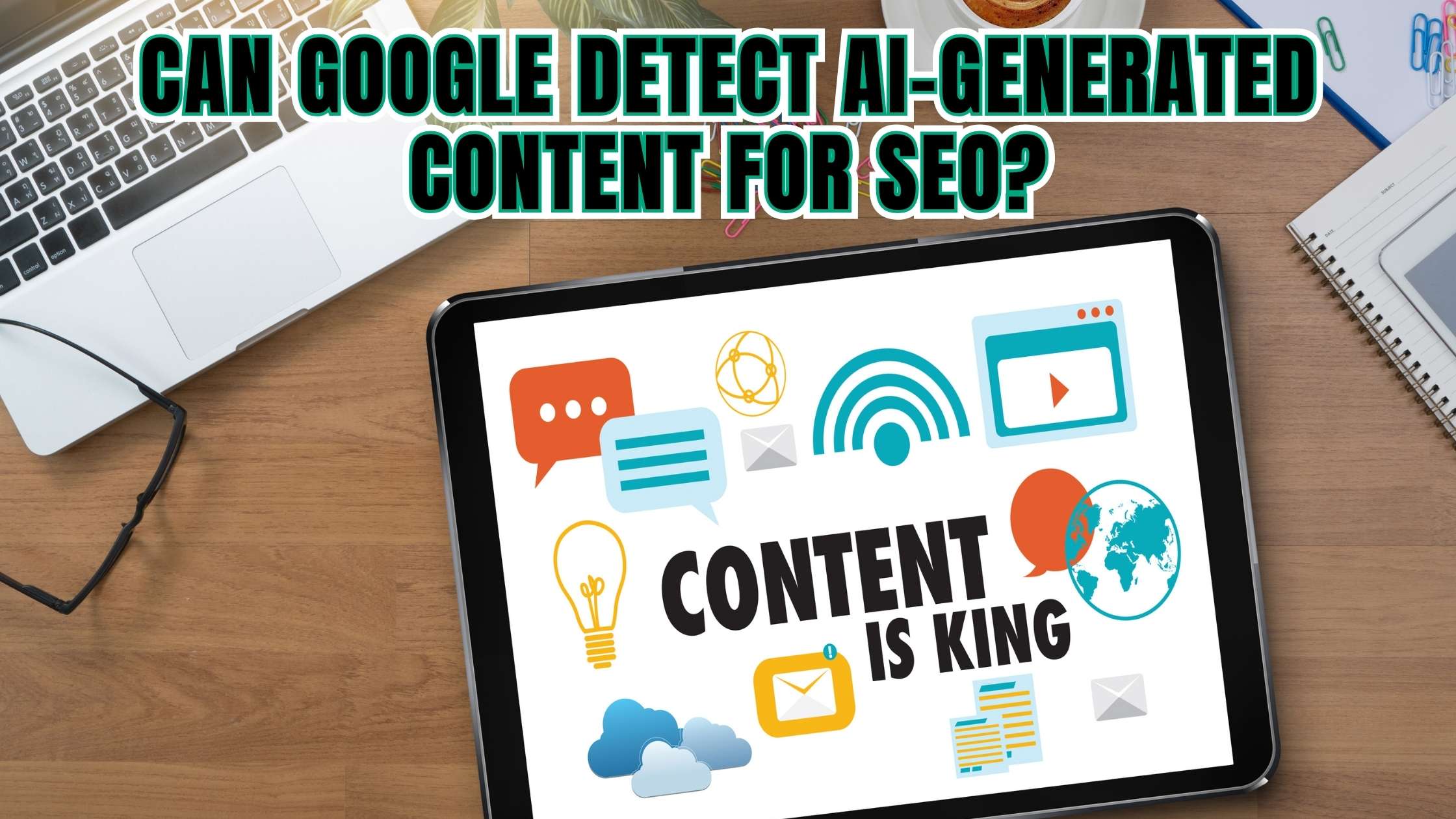Can Google Detect AI-Generated Content for SEO?
- AI Image Generators Software AI Writing Assistant Popular Tools AI Tools


Can Google Detect AI-Generated Content for SEO?
In the ever-evolving landscape of search engine optimization (SEO), the question of whether Google can detect AI-generated content has become increasingly pertinent. As AI technologies advance, content creators and website owners seek to leverage automation to produce content at scale. However, concerns arise regarding the authenticity and effectiveness of AI-generated content in the eyes of search engines, particularly Google. In this article, we will delve into the intricacies of AI-generated content, its implications for SEO, and whether Google has the capability to discern between human-created and AI-generated content.
Understanding AI-Generated Content
AI-generated content refers to text, articles, or other written materials generated using artificial intelligence algorithms, often without direct human involvement in the writing process. These algorithms can analyze vast amounts of data, learn from patterns, and generate coherent and contextually relevant content. AI-generated content can range from product descriptions and news articles to blog posts and social media updates.
The Rise of Natural Language Processing (NLP)
Advancements in natural language processing (NLP) have played a pivotal role in the development of AI-generated content tools. NLP algorithms can interpret and generate human-like text, enabling AI systems to mimic the writing style and tone of human authors. This has led to the proliferation of AI writing assistants and content generation platforms that leverage NLP to create content efficiently.
Potential Benefits of AI-Generated Content
Proponents of AI-generated content tout several potential benefits, including increased efficiency, scalability, and cost-effectiveness. By automating the content creation process, businesses can generate large volumes of content in less time and at a lower cost compared to traditional manual writing methods. Additionally, AI-generated content can be tailored to specific keywords, topics, or audience preferences, optimizing its relevance and effectiveness for SEO purposes.
Ethical and Quality Considerations
Despite its potential benefits, AI-generated content raises ethical and quality considerations. Critics argue that AI-generated content may lack the creativity, authenticity, and unique perspective that human-authored content offers. Moreover, there are concerns about the proliferation of low-quality or spammy content generated by AI algorithms, which could undermine the credibility and trustworthiness of online information.
Can Google Detect AI-Generated Content?
The question of whether Google can detect AI-generated content is a topic of debate among SEO professionals and content creators. While Google has not explicitly disclosed its methods for identifying AI-generated content, it employs sophisticated algorithms and machine learning models to assess the quality, relevance, and authenticity of online content. Here are some factors that suggest Google’s ability to detect AI-generated content:
Natural Language Understanding
Google’s algorithms are adept at understanding natural language patterns, semantics, and context. They can discern nuances in writing style, syntax, and vocabulary usage that may indicate whether content is human-authored or generated by AI. However, distinguishing between high-quality AI-generated content and human-written content remains a complex challenge for search engines.
Quality Signals and User Engagement Metrics
Google relies on various quality signals and user engagement metrics to evaluate the relevance and usefulness of content. Factors such as bounce rate, time on page, and user interaction signals can provide insights into the authenticity and value of content. Low-quality or irrelevant AI-generated content may fail to engage users effectively, leading to poorer search rankings.
Pattern Recognition and Algorithm Updates
Google continuously refines its algorithms and updates its search quality guidelines to combat spam, manipulation, and low-quality content. Through pattern recognition and machine learning, Google’s algorithms can adapt to evolving tactics and identify patterns associated with AI-generated content. As a result, websites employing AI-generated content may face scrutiny and potential penalties if their content violates Google’s guidelines.
Relevant SaaS Products for SEO
As businesses navigate the complexities of SEO and content creation, various SaaS products offer tools and solutions to enhance their strategies. Here are some noteworthy SaaS products that can assist in content creation, optimization, and SEO:
- Copy.ai: Copy.ai is an AI writing assistant that generates marketing copy, blog posts, ad headlines, and more, helping businesses streamline their content creation process.
- MarketMuse: MarketMuse uses AI to analyze content gaps, optimize for relevant topics and keywords, and improve content quality and SEO performance.
- Clearscope: Clearscope provides content optimization software powered by AI, helping users produce high-quality, relevant content that ranks well in search results.
- WordLift: WordLift is an AI-powered content optimization tool that enhances website SEO by analyzing content, structuring data, and improving semantic search visibility.
- Surfer: Surfer offers AI-driven content optimization tools that analyze top-ranking pages, provide content recommendations, and improve on-page SEO factors for better search rankings.
Conclusion
In conclusion, the question of whether Google can detect AI-generated content for SEO remains complex and nuanced. While Google employs advanced algorithms and techniques to assess content quality and relevance, the effectiveness of AI-generated content detection is not foolproof. As AI technologies continue to evolve, content creators and SEO professionals must prioritize authenticity, relevance, and user engagement to succeed in the ever-changing landscape of search engine optimization.
As businesses seek tools and resources to optimize their SEO strategies and content creation processes, platforms like Subscribed.FYI offer invaluable insights and solutions. By providing a centralized platform for comparing and managing SaaS tools, Subscribed.FYI empowers users to make informed decisions about their SEO initiatives. Additionally, Subscribed.FYI Deals unlock exclusive savings on essential SaaS products like Copy.ai, MarketMuse, Clearscope, WordLift, and Surfer, enabling businesses to maximize their ROI and stay ahead in the competitive world of SEO.
Relevant Product Links:
Explore Subscribed.FYI:








